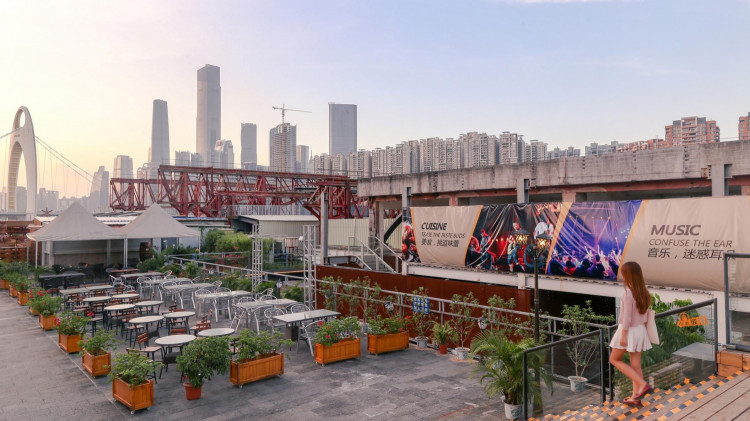Guangdong Province No. 1 In GDP
The southern province Guangdong continues to rank as the top province in terms of gross domestic product, totaling RMB4.9234 trillion (US$710 billion) in output during the first half of the year, a decline of 2.5% year-on-year.
Guangdong was one of the 25 provinces and regions, out of a total of 34 in China, that had by Tuesday reported GDP data for the first half.
While Guangdong's GDP was boosted by growth in the construction industry and electronic equipment industry during this period, sectors including manufacturing and foreign trade experienced a drop of 6.2% year-on-year.
The eastern province of Jiangsu and the northeastern province of Shandong ranked second and third in the country, reporting GDPs of RMB4.6722 trillion (US$670 billion) and RMB3.3025 trillion (US$470 billion), respectively.
Of the 25 reporting provinces, the southwestern province of Guizhou and the northwestern province of Gansu saw the fastest GDP growths, each with an increase of 1.5% year-on-year.
The GDP growth rate in 14 provinces and regions - Jiangsu, Zhejiang, Sichuang, Fujian, Hunan, Anhui, Jiangxi, Chongqing, Guangxi, Guizhou, Ningxia, Qinghai and Gansu - turned from negative to positive.
The province most affected by the coronavirus pandemic, Hubei, had a drastic GDP drop of 19.3% year-on-year, but has shown consecutive increases in May and June after a steep decline in the first quarter.
The national GDP for the first half year is estimated to reach RMB45.66 trillion (US$6.53 trillion), a decline of 1.6% year-on-year, according to the National Statistics Bureau.
Inbound Airline Passengers Require Nucleic Acid Tests
Overseas passengers traveling to China are now required to show negative coronavirus test results approved by any of China's overseas embassies or other authority before boarding their flights, with the negative test results registered within five days before travel.
The Civil Aviation Administration of China, the Ministry of Customs and the Ministry of Foreign Affairs announced the regulation for all passengers, Chinese or foreign, traveling to China, as part of efforts to strengthen COVID-19 prevention and control.
Chinese passengers have to upload the test negative results on a WeChat application specific for international passengers similar to the domestic epidemic prevention health code already in use, while foreign passengers must apply for a health statement paper from any of China's embassies or consulates.
Airline companies will check the health code and health statement paper before passengers' boarding and passengers not meeting the requirement will not be allowed to board their flights.
Passengers providing any falsified approval or information for boarding will bear legal responsibility, according to the notice.
Plastics Out, Paper In
The China Hotel Association and the China Cuisine Association have called for replacing plastic tableware with biodegradable paper and wooden products, as part of the national effort to ban plastics in the country.
Restaurants across China already must meet a National Development and Reform Commission (NDRC) mandate to end their use of disposable, nondegradable plastic straws by the end of 2020.
Analysts said that each disposable plastic straw costs RMB0.03 to 0.05, while paper straws cost three to six times more.
Some large restaurant chains in Beijing, including McDonald's, Starbucks, and Happy Duck House have already started using paper straws, while small-scaled privately held restaurants are still commonly using plastic straws, Beijing Daily reported.
China in 2008 introduced restrictions on the production, sale and use of plastic bags with a thickness of less than 0.025 millimeters in supermarkets, wholesale markets and malls. This resulted in the elimination of an estimated 70 billion plastic bags through 2016. However the rapid recent growth in express and meal delivery industries boosted by e-commerce and food delivery sectors has largely offset those efforts.
Plastic bag usage now amounts to over 4 million tons annually, according to statistics released by Science Daily in September 2019.
Aside from banning nondegradable plastic and some express packaging in certain regions, the NDRC notice also bans waste plastic imports and the production of plastic goods from medical waste materials.
State Council Outlines Housing Renovation Plan
Roughly seven million Chinese families in 39,000 older housing compounds can expect apartment renovations by the end of 2020, with half of these already in progress, China's State Council said Tuesday.
The State Council plans to renovate a total of up to 35 million older apartments in 220,000 housing compounds across China by the year of 2025, as a key part of the 14th Five-Year Plan.
Aside from the RMB54.3 billion (US$7.78 billion) of the state's direct investment in refurbishment and reconstruction of basic facilities such as water supply and drainage systems, other renovations will be made according to residents' wishes and participation, with supplemental government incentives, according to the State Council.
For example, institutions that provide services including elder care, childcare and housekeeping in housing compounds will be exempted from paying value-added tax – a consumption tax placed on a product across the stages of the supply chain.
Analysts said the five-year renovation plan is intended to stimulate domestic demand and investment through 2025.
Beijing Resumes Entertainment Business
After reporting on Tuesday the complete containment of coronavirus cases in the latest outbreak epicenter, Beijing announced that it will resume business as usual at entertainment venues, internet cafes, theaters and KTVs starting Friday, but with COVID-19 prevention and control measures intact.
Moviegoers must make reservations online, wear masks and keep one-meter social distancing in any theater, while the number of spectators is capped at 30% occupancy. Capacity in entertainment venues including KTVs, dance clubs and internet cafes is capped at 50% of the approved number of customers. Screening, performances or entertainment acts must last less than two hours each, according to the Beijing Municipal Bureau of Culture and Tourism (BMBC).
For multiplex theaters or multiple venue entertainment complexes, proprietors are allowed to have only one venue in operation. All medium- and large-scale performances remain suspended. Additionally, all commercial performances related to Hong Kong or Macau have been suspended, according to the BMBC.





